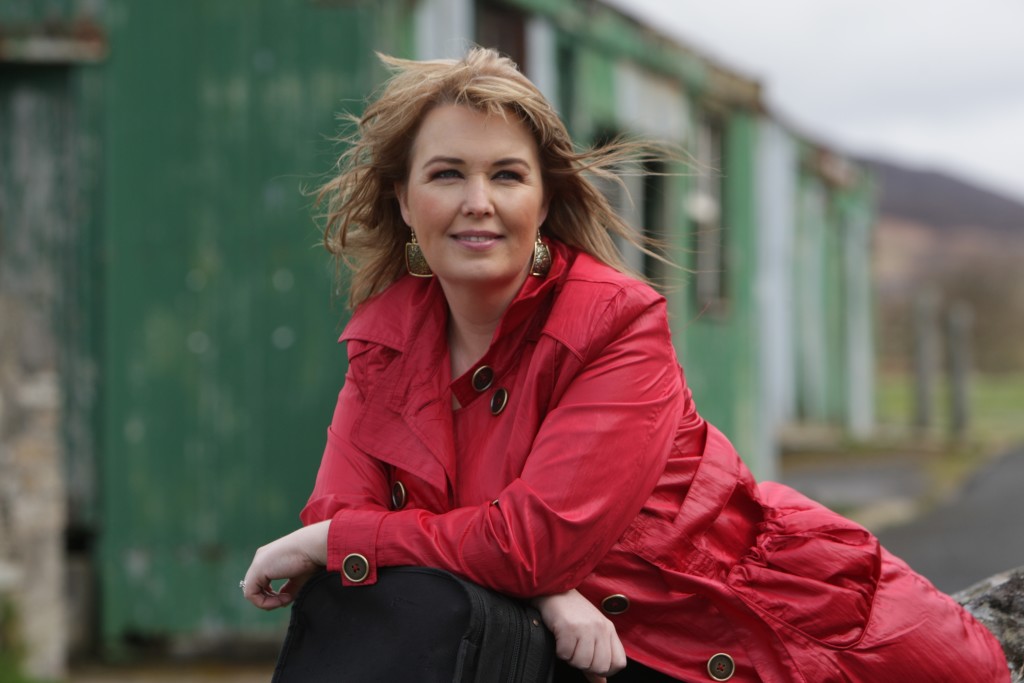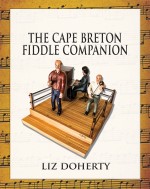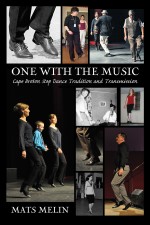
Two new books from CBU Press related to Cape Breton fiddle and step dance will be launched during another international conference being held concurrently with Celtic Colours, the North Atlantic Fiddle Convention (NAFCo), October 13-17, in Sydney and Baddeck.
One With the Music: Cape Breton Step Dance Tradition and Transmission, by Swedish-born dance scholar Mats Melin, and The Cape Breton Fiddle Companion, by Irish fiddler and scholar Liz Doherty, will both be officially launched on October 14 at a reception hosted by NAFCo.
A third book will also be introduced to the local audience. Seanchaidh na Coille / Memory-Keeper of the Forest: Anthology of Scottish-Gaelic Literature of Canada, by Michael Newton, was officially launched in Toronto and Guelph, ON, earlier this month.
 Liz Doherty, PhD, is a fiddle player, teacher and researcher of traditional music. A lecturer in Irish traditional music at Ulster University, Derry, Doherty has organized many traditional arts conferences and festivals, including Éisge na Laoi, a festival of Cape Breton music in Cork (1993) and The North Atlantic Fiddle Convention (2012). As a fiddle player, she has recorded and toured with various groups and as a solo artist. She has performed many times at Celtic Colours International Festival since its launch in 1997, and returns this year as one of the Artist in Residence. Well-known to Cape Breton artists and audiences Doherty has been researching Cape Breton fiddle tunes, literature and personalities for nearly twenty years. The Companion, is an encyclopedic record of that research.
Liz Doherty, PhD, is a fiddle player, teacher and researcher of traditional music. A lecturer in Irish traditional music at Ulster University, Derry, Doherty has organized many traditional arts conferences and festivals, including Éisge na Laoi, a festival of Cape Breton music in Cork (1993) and The North Atlantic Fiddle Convention (2012). As a fiddle player, she has recorded and toured with various groups and as a solo artist. She has performed many times at Celtic Colours International Festival since its launch in 1997, and returns this year as one of the Artist in Residence. Well-known to Cape Breton artists and audiences Doherty has been researching Cape Breton fiddle tunes, literature and personalities for nearly twenty years. The Companion, is an encyclopedic record of that research.
With the assistance of a veritable who’s who in the tradition, and without claiming to be complete, the book is an amazing account of the people, places, tunes and tricks that is both fascinating and entertaining.
“The fiddle music of Cape Breton has its own sound, artistic standards, performance practices and etiquette,” writes Doherty.
“The Cape Breton fiddler of the 21st century is performing a music that was transplanted from the Highlands and Islands of Scotland in the 18th and early 19th centuries, adapted and evolved through several generations while also making it relevant for contemporary audiences, which today are as likely to be international as local.”
Fiddler and step dancer Rodney MacDonald, CEO of Colaisde na Gàidhlig / The Gaelic College, says that Doherty sheds new light on the traditions, with her “detailed overview of Cape Breton’s remarkably rich heritage of fiddle music.”
MacDonald’s lifelong relationship with the music is, of course, chronicled in the Companion. His comparable background in Cape Breton style step dancing is also chronicled in Mats Melin’s One With the Music – being launched at the same time.
 Melin has worked and performed extensively in Scotland, Sweden, Canada, the United States, Russia and New Zealand. He has a vast knowledge of all aspects of dance in the Scottish tradition, but specializes in Cape Breton step dancing, for which he was awarded his PhD at University of Limerick. A co-founder of the dynamic Scottish performance group Dannsa, in 1999, he is currently a Lecturer in Dance at the Irish World Academy of Music and Dance at the University of Limerick.
Melin has worked and performed extensively in Scotland, Sweden, Canada, the United States, Russia and New Zealand. He has a vast knowledge of all aspects of dance in the Scottish tradition, but specializes in Cape Breton step dancing, for which he was awarded his PhD at University of Limerick. A co-founder of the dynamic Scottish performance group Dannsa, in 1999, he is currently a Lecturer in Dance at the Irish World Academy of Music and Dance at the University of Limerick.
Ethnomusicologist Heather Sparling (Cape Breton University) calls Melin’s book “a warm, generous and thoughtful gift to the community.”
“We benefit from Mats’s profound understanding, not just of Cape Breton dance, but of Scottish dance and its analysis more broadly,” writes Sparling.
Open to the public, the launch (Wednesday, October 14, 4:30 to 6pm in the Multi-Purpose Rooms at Cape Breton University) is being held in conjunction with the North Atlantic Fiddle Convention and precedes the popular CBU Jam Session and Celtic Colours “North Atlantic Fiddles” concert (a ticketed event).

